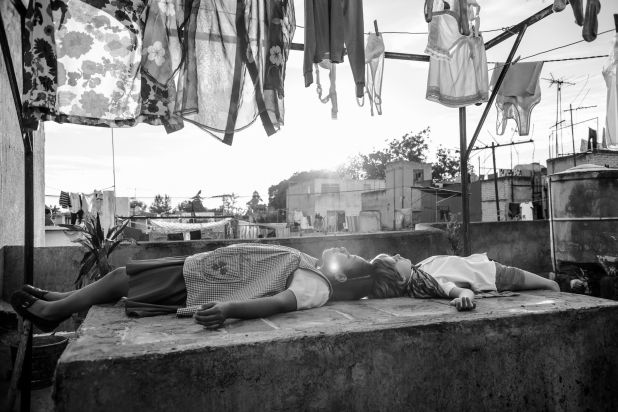Review: Roma
- Pamela Villaflores
- Dec 16, 2018
- 2 min read

A deeply personal film that exudes warmth, sensitivity, humanity and astonishing beauty, Roma is director Alfonso Cuarón's eighth feature film, his first in his native Mexico since Y Tu Mamá También, and arguably his best work to date. Marrying the neorealist stylings of Roberto Rossellini's Open City and Vittorio De Sica's The Bicycle Thief to the lush emotionalism of Max Ophüls, Roma is also a celebration of the women who helped define Cuarón as both a man and a filmmaker.
Essentially a memory play shot in ravishing black and white, the film takes place in a middle-class neighbourhood in Mexico City in the early Seventies. Spanning a year in which political unrest threatens the city, Cuarón focuses on an equally turbulent time in one family's life with one woman as its narrative anchor. That woman is Cleo, played with magnificent stoicism and strength by Yalitza Aparicio in her acting debut. Cleo works for a well-to-do family comprised of a patriarch constantly absent for business, his wife Sofía (Marina de Tavira), and their four rambunctious kids, the youngest of which Cleo shares a special affinity. Cleo is embraced as an extended member of the family, though not immune from being reminded of her place by Sofia, though both of them have a bond that runs deeper than mere maid and mistress.
Both women undergo huge upheaval. Sofía puts on a happy face for her children even as her marriage is falling apart. Cleo finds herself pregnant by her boyfriend (Jorge Antonio Guerrero), a martial-arts enthusiast who disappears after hearing the news. "No matter what they tell you, we women are always alone," Sofía tells Cleo at one point, a statement that would be treacly were it not for the strength and serenity embodied by both women, particularly Cleo, who experiences one of the most harrowing and heartbreaking moments in the film.
Though it has many elements of a telenovela, Roma never becomes even remotely melodramatic due not only to Cuarón's care and consideration for his characters but also the manner in which such moments are executed. In most other films, scenes such as the children witnessing their father with his mistress would be played to maximum effect but Cuarón understands that the significance of such moments are often in hindsight. Life itself goes on, and such moments are eventually washed away.
Cuarón, who also serves as the film's cinematographer, presents viewers with scenes of remarkable surrealism and sheer exquisiteness. From the rooftops where laundry hangs from the clotheslines to the tracking shots of the neighbourhood's hustle and bustle to the numerous heads of dead dogs mounted on the walls of a hunting lodge to the constant framing of Cleo amidst crowds or cluttered rooms that emphasise the burgeoning chaos not only of her life but of her country's, Roma is replete stunning imagery that seem both straightforward and symbolic. Cuarón transforms the personal into the poetic, the mundanities of life into magic, and those often in the sidelines into heroic figures for whom we should all be thankful.
Roma
Directed by: Alfonso Cuarón
Written by: Alfonso Cuarón
Starring: Yalitza Aparicio, Marina de Tavira, Diego Cortina Autrey, Carlos Peralta, Marco Graf, Daniela Demesa, Nancy García García, Veronica García, Andy Cortés, Fernando Grediaga, Jorge Antonio Guerrero, José Manuel Guerrero Mendoza





Comments